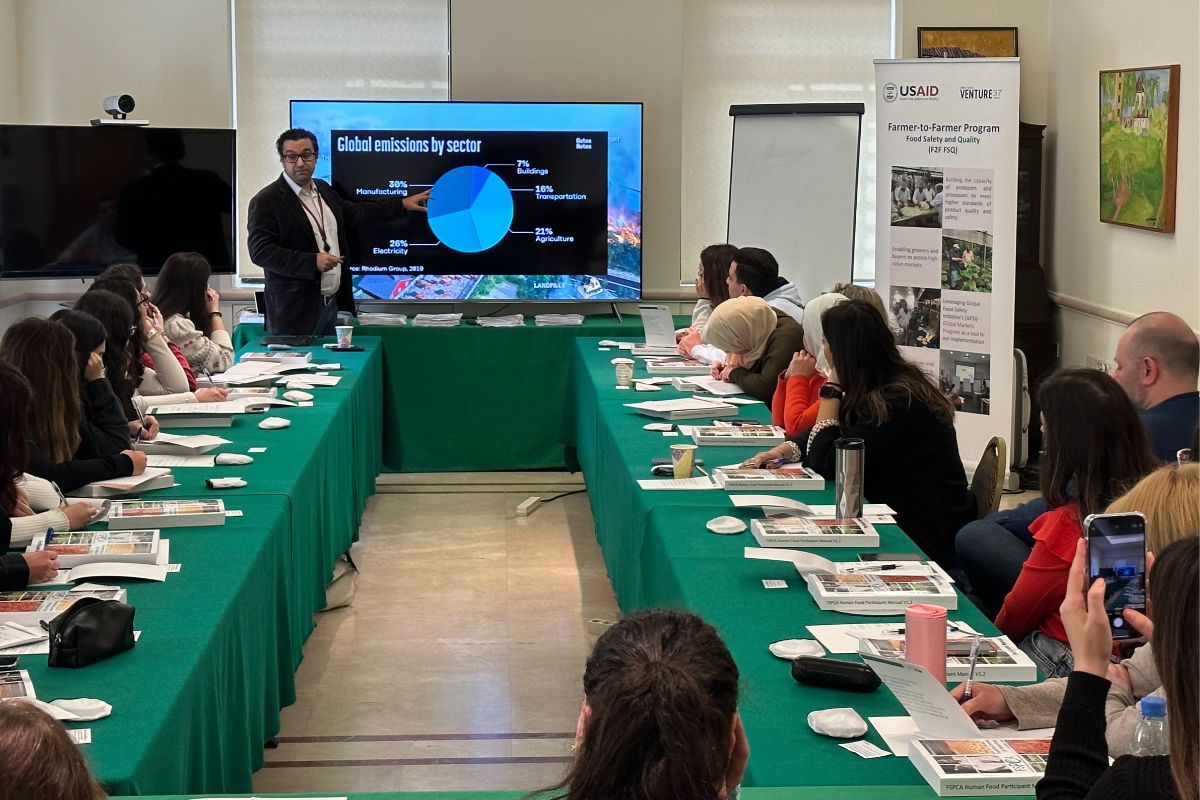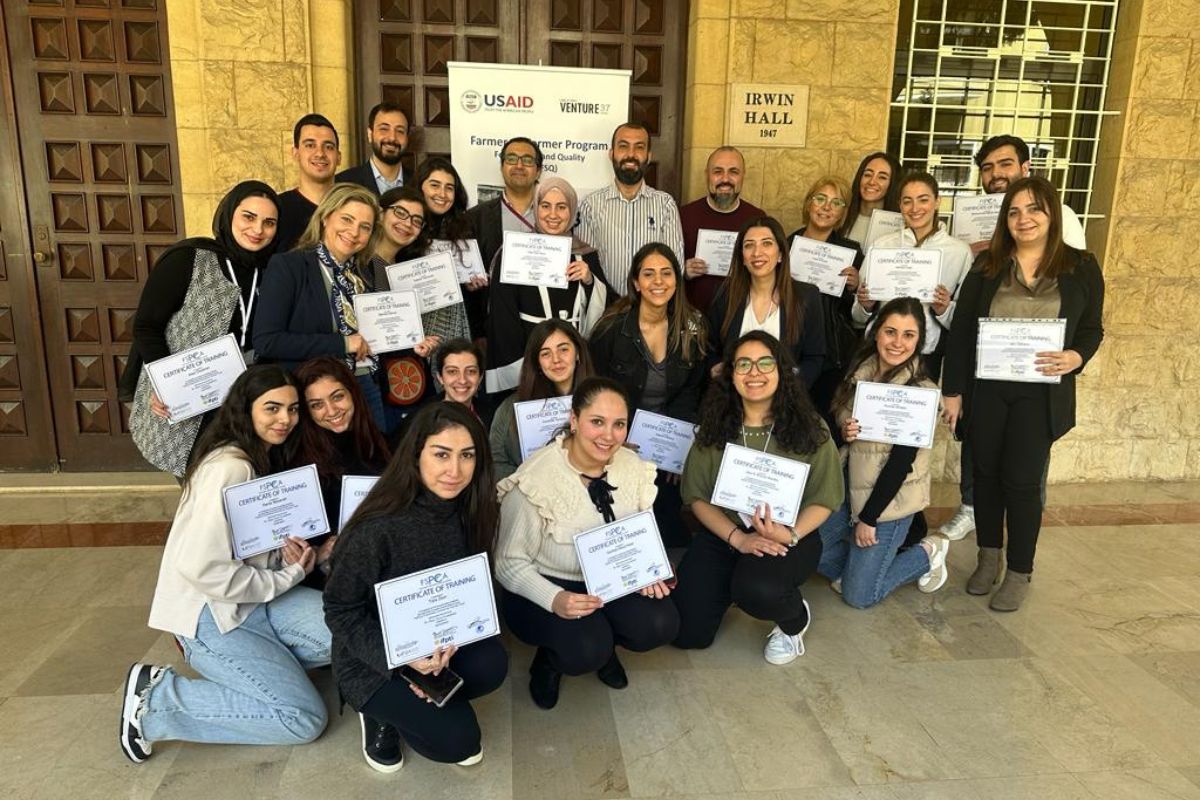Safe Food Saves Lives
LAU collaborates with USAID’s Farmer-to-Farmer program to provide food safety training for its students to increase their understanding of food preventive controls and expand their careers.
With the rising population and increased potential hazards in the food supply chain, our access to food is in dire need of surveillance and regulation. The manner in which foods are grown, harvested and processed puts them at a higher risk of contamination and carrying foodborne illnesses.
For this reason, ensuring the safety of the food supply by shifting the focus of regulation from response to prevention lies at the heart of the USAID-funded Farmer-to-Farmer (F2F) Preventive Controls Qualified Individual (PCQI) training – implemented by Land O’Lakes Venture37 – that was held at LAU.
Twenty-five students from multiple universities congregated at LAU to take part in the three-day intensive training organized by F2F to engage the youth and furnish their intellect with the information and opportunities required to contribute to the overall development of their communities.
Attended by food safety professionals and university professors, and delivered by Dr. Aliyar Cyrus Fouladkhah, associate professor in Microbial Food Safety and Epidemiology at Tennessee State University, Nashville, TN, the training aimed to “increase their understanding of food preventive controls which will enable them to perform better food inspections and improve their food safety and quality practices in the food facilities,” said Dr. Fouladkhah.
Overall, PCQI’s primary focus is monitoring the implementation of the food safety plan in food facilities, developing and validating preventive controls, monitoring the effectiveness of the said measures, as well as taking corrective actions if necessary. As a fundamental framework, this training sought to educate its participants on uplifting food safety in their country, outside of it, and in public health.
When asked about how this PCQI training will benefit students in their careers, Associate Professor of Food Science and Technology Hussein F. Hassan stated that it “will equip the participants with the needed skills that any food safety professional must have to support their company in exporting their products.”
Food safety in Lebanon has been at stake due to improper food storage caused by power shortages and an uncontrolled food supply as a result of a dysfunctional public sector. “To successfully develop, implement and maintain any food safety management system,” said Dr. Hassan, “highly educated and trained professionals are needed to create a food safety culture. According to studies, education and training are key to food safety.”
On completing the training, the participants received certificates funded by the Public Health Microbiology Foundation. Being PCQI-certified, said Dr. Hassan, will increase their chances to find jobs in the food service industry as well as improve their competence for a successful start to a career in the industry.
In view of that, students acquired a better understanding of the ethical considerations when developing and delivering food safety practices. “To me,” said Dr. Hassan, “if it is not safe, it is not food. Providing food supply is an ethical obligation that every food service professional must keep in mind.”

